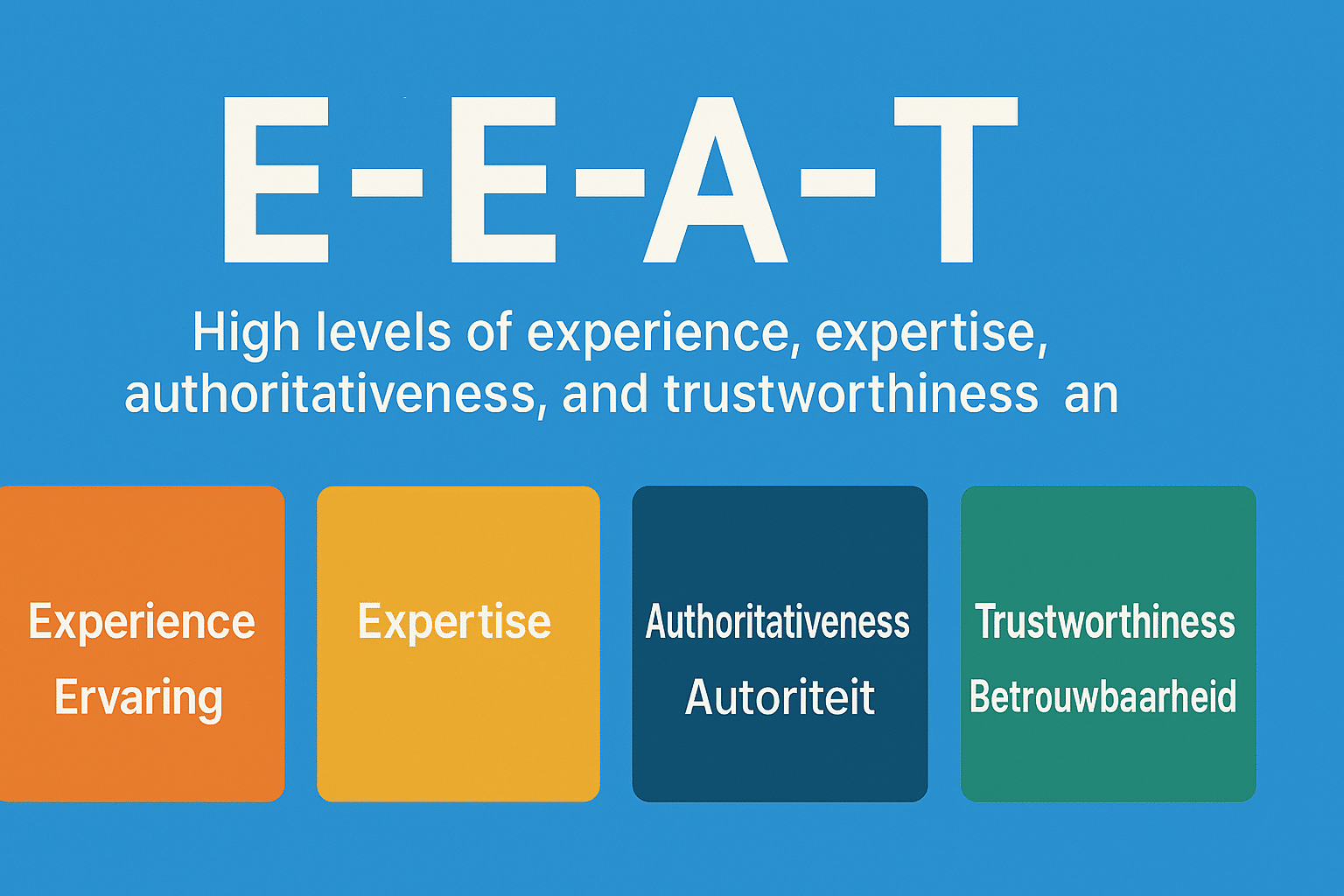What does E-E-A-T stand for?
E-E-A-T are factors that Google takes into account when ranking websites in its search engine. In this blog post, you will learn exactly what this stands for and how you can apply it to rank your website in the organic search results not only of Google, but also of other search engines and drive traffic to your website.
High level of experience, expertise, authority and trustworthiness (E-E-A-T)
The criteria for E-E-A-T can therefore be broken down into the following factors that Google takes into account when ranking your content and your website in the search results.
Experience
Experience in a topic has long been a factor that Google places a lot of importance on, and is an important measure of how experienced a website, and more importantly the person or team behind it, is with the topic.
If you are a fanatical winter sports enthusiast and you write an article about skiing and snowboarding, in most cases it will be much more interesting than if a layperson or someone who is not in the field writes an article about it. This content can be packed with the expert's personal experiences, opinions and views that a layperson would not have. So with the knowledge and passion for a topic, you can make sure your content has something unique to offer. Rather than a generic description of an article or a ski resort.
Specialist knowledge
In addition to your experience, you can also incorporate specialist knowledge into your content, for example by using your personal experience to illustrate certain opinions. An article or product about skiing can be highly praised by various sources, but if you think, for example, that this doesn't work properly or what should be added, then this expertise is an important factor that can put the advantage on your side.
Authority, authority
Authority in the context of E-E-A-T refers to how your site and you as a content creator are perceived as a reliable source in a particular niche or industry. This is closely related to experience and expertise, but emphasizes external recognition and influence. Google looks for signs that your content is valued and recognized by others in your field. This can include backlinks from respected websites, mentions on social media or in news articles, and positive reviews from experts in your industry.
In addition, personal or brand authority also plays a role. Are you a household name in your field? Are you quoted or invited as an expert? These factors strengthen your authority and increase the likelihood that Google will rank your content higher in search results.
Trustworthiness
Trustworthiness is one of the most important factors in this game, and you need to be trustworthy as a source for the topic your content is about. Without trustworthiness, it doesn't matter how much experience, expertise or authority you have - Google and your visitors should be able to trust that the information on your website is accurate, honest and secure.
Google assesses trustworthiness in a number of ways, such as the transparency of your website, the source of your information and the security of your website (e.g. through an SSL certificate).
How can you ensure a trustworthy website?
✔ Clear and transparent information
Always state who the author of an article is and what expertise they have.
Provide a clear "About us" page with information about your company or team.
Provide an easy-to-find contact page with multiple ways to get in touch.
✔ Sources and fact-checking
Back up claims with reliable sources, such as scientific studies, reputable news websites or official bodies.
Link to original sources and avoid spreading unverified information.
✔ Security and privacy
Make sure your website has an SSL certificate (HTTPS instead of HTTP) so that users can browse securely.
Protect customer data and communicate clearly about your privacy policy and how data is processed.
✔ Fair and transparent reviews
Provide honest reviews when discussing products or services and mention any collaborations or sponsorships.
Encourage genuine user reviews and respond professionally to positive and negative feedback.
By putting trustworthiness at the heart of everything you do, you not only create a better user experience, but also build long-term trust with search engines and visitors.
What is low-quality content?
Low-quality content is easy to create and can lower your E-E-A-T rating on Google, so make sure you put effort into every post, page and other piece of content you create. So make sure you give equal attention to every post, page and other content before you publish it on your website. By doing all of the above, you ensure that you don't give any reason to lose face and thus ensure that your website has the best chance of appearing in the first search results.
So it's not enough to publish the content on your website, you also need to make sure that your name and brand are known as a reliable source. And be able to show this on sources other than just your website. So commit to being at the forefront here too and start with the solid foundation of MijnHostingPartner.nl to enjoy all the benefits of our hosting packages .
